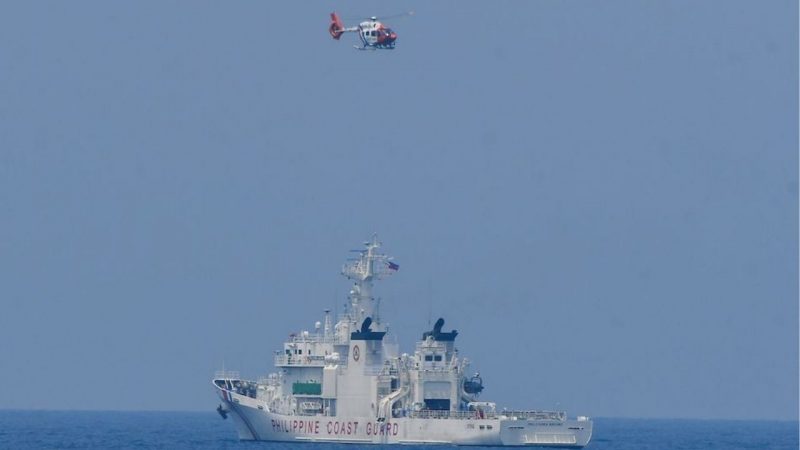By Junex Doronio
MANILA — Barely 10 days before China will arrest “trespassers” in its imagined territory by its nine-dash line, the Philippine Navy reported on Wednesday (05 June 2024) an increase in the number of China’s People’s Liberation Army Navy (PLAN) vessels in the West Philippine Sea (WPS).
It was gathered that in total, 125 vessels were monitored in Philippine-occupied features in the WPS from May 28 to June 3.
These reportedly include nine (9) China Coast Guard vessels, 11 PLAN vessels, and 105 Chinese maritime militia vessels.
But the Philippine military remained unperturbed.
On Tuesday (4 June 2024), the Philippine Coast Guard (PCG) disclosed that the United States Coast Guard (USCG) has promised to send “assets” to the South China Sea to support Manila in upholding sovereign rights in its exclusive economic zone (EEZ).
In a statement, the PCG said the USCG will deploy its North Pacific Coast Guard following the proposal of Admiral Ronnie Gil Gavan for a “greater deployment” in high seas “to address the forthcoming threat”.
This “threat” was China’s enforcement of its new regulation of detaining supposed trespassers in what it considers its maritime boundaries under its “imagined” nine-dash line.
Gavan proposed not only to the USCG but also to the Japan Coast Guard (JCG) during the International Institute for Strategic Studies Shangri-La Dialogue in Singapore.
“I’d like to propose greater deployment in the high seas. We will do our part, but we also need you to be there to maintain rules-based order the way Coast Guards should play their role,” the PCG official said.
“We know our limits, but we know we can do something to give time for our political leaders to do their part to keep the West Philippine Sea as free as it should be,” Gavan noted.
For her part, USCG Commandant Admiral Linda Fagan confirmed her meeting with Gavan, as well as with JCG Vice Admiral Seguchi Yoshio, in Singapore.
She observed the “increasingly central geopolitical role” the maritime law enforcement agencies play in the Asia-Pacific region.
“They must demonstrate professional behavior at sea to support good maritime governance, which is critical to global economic prosperity and security Malign activities such as human and drug trafficking, cyber-attacks, and illegal, unreported, and unregulated fishing drive instability and threaten the rules-based international order,” the USCG Commandant said in a separate statement.
According to the PCG, the JCG proposed the conduct of more personnel exchanges to create a robust network of Coast Guard counterparts in pursuit of maritime law enforcement and the rule of law.
“Rest assured that the PCG is doing its share in the alliance we nurture. We are grateful for the new opportunities to further strengthen our ranks and fulfill our roles in the most unique way to address current challenges,” Gavan declared.
(el Amigo/mnm)







